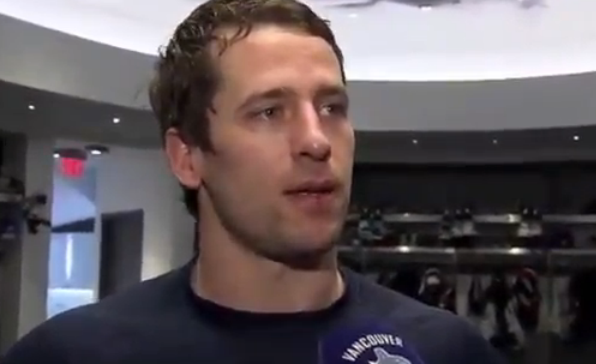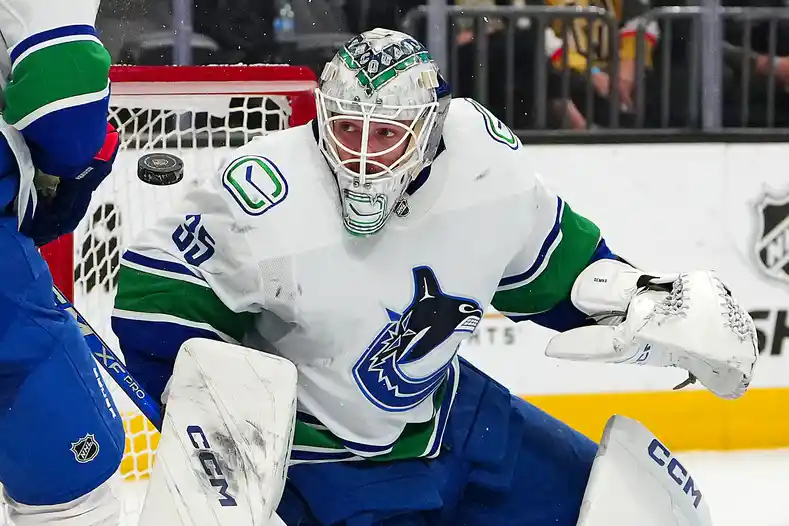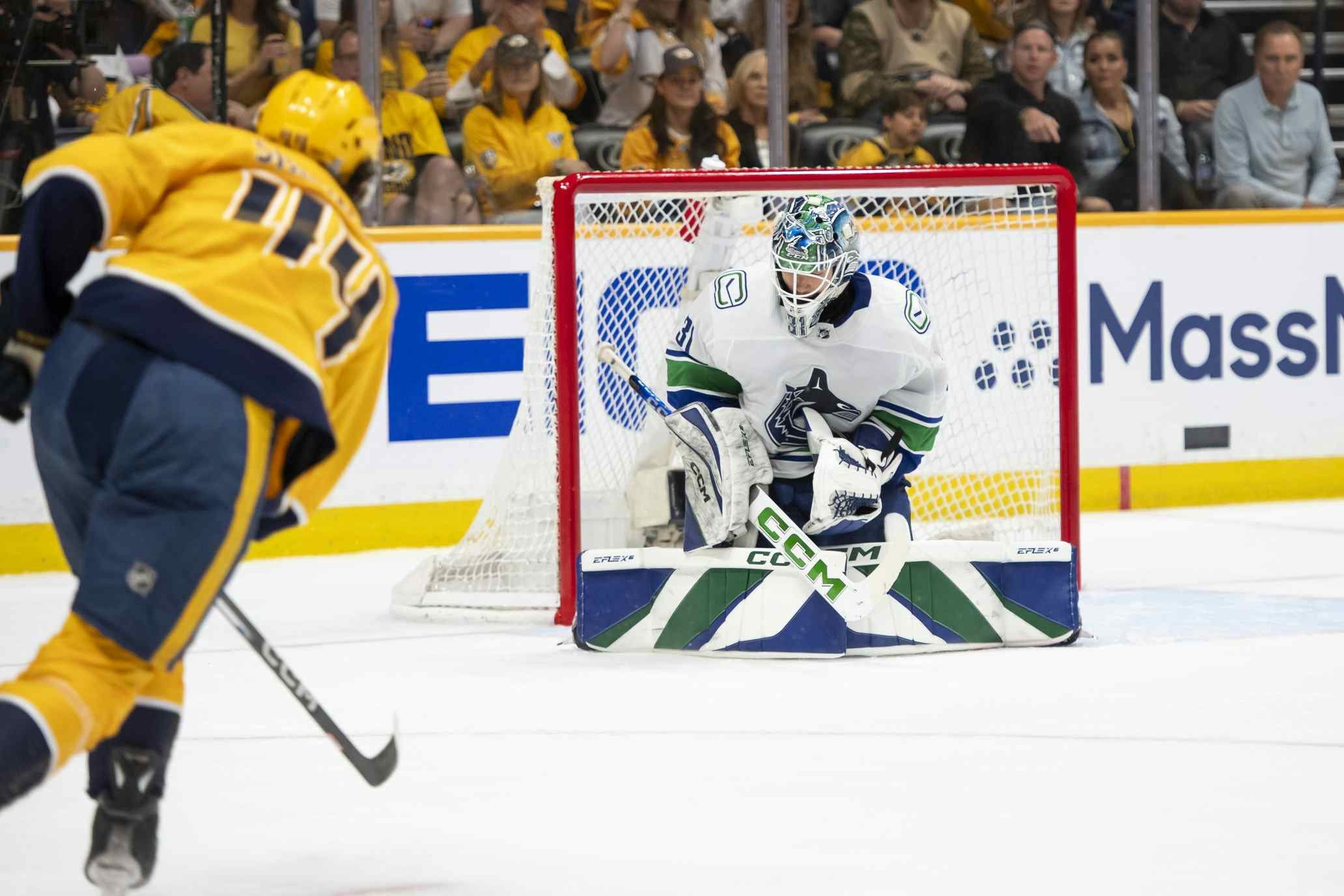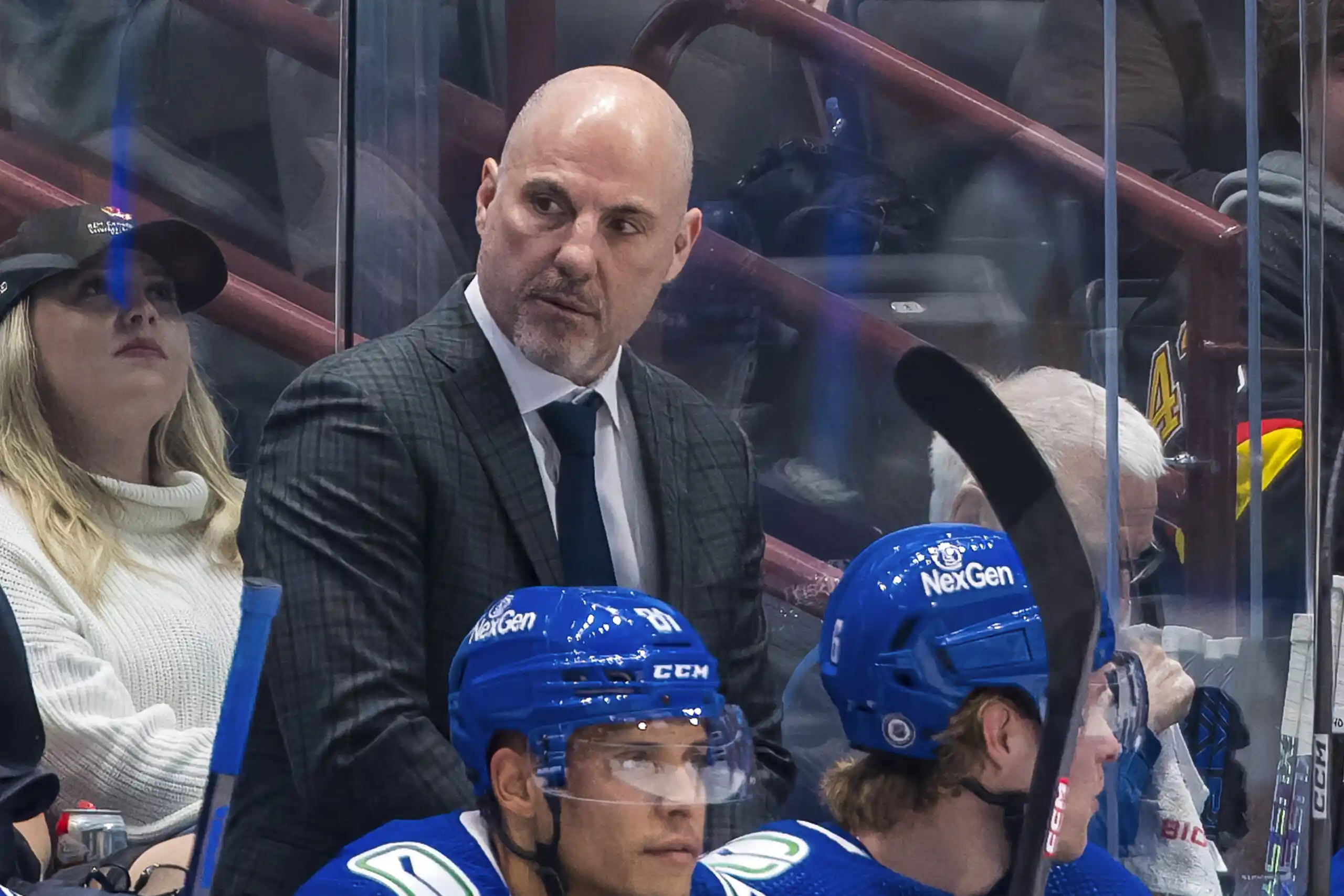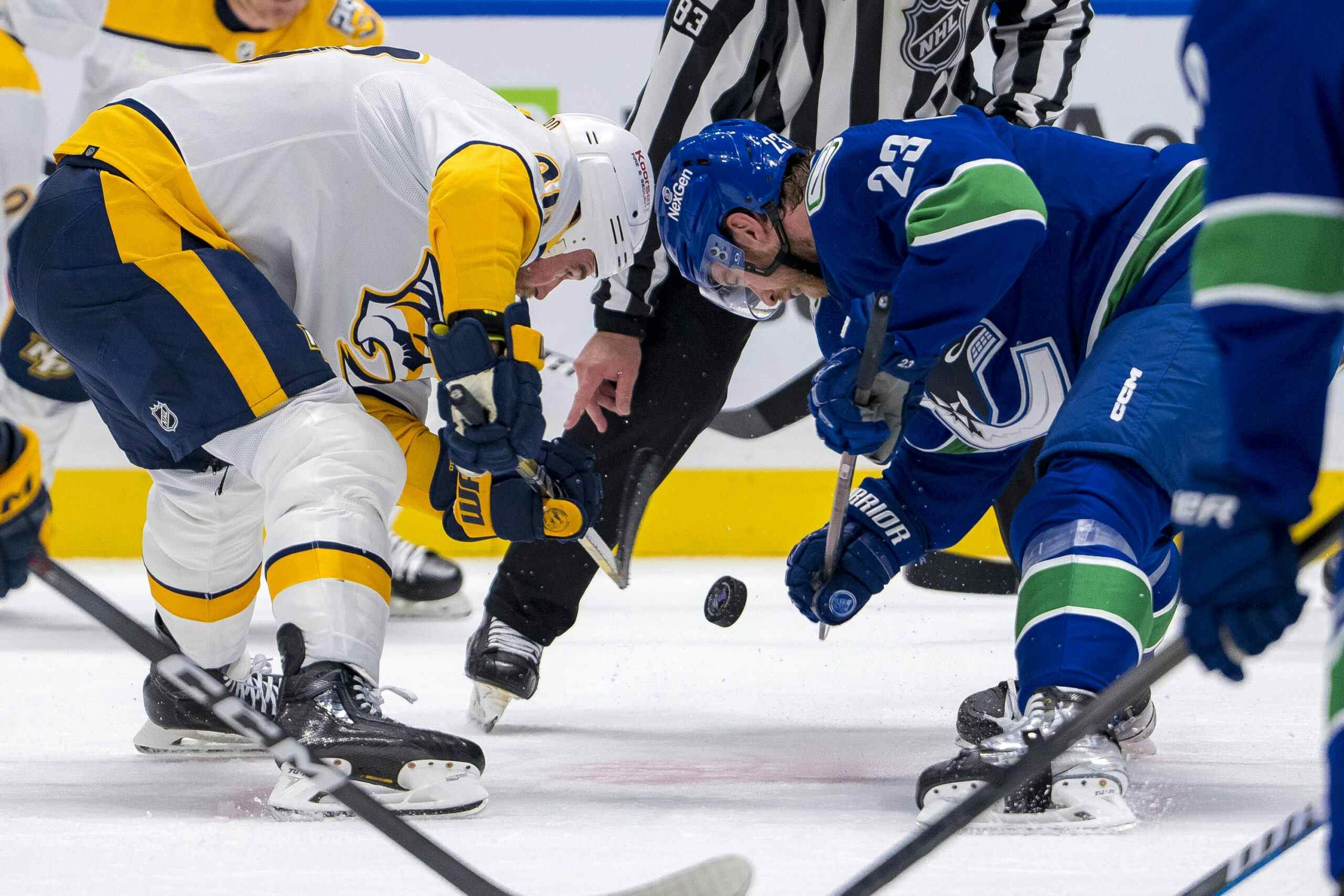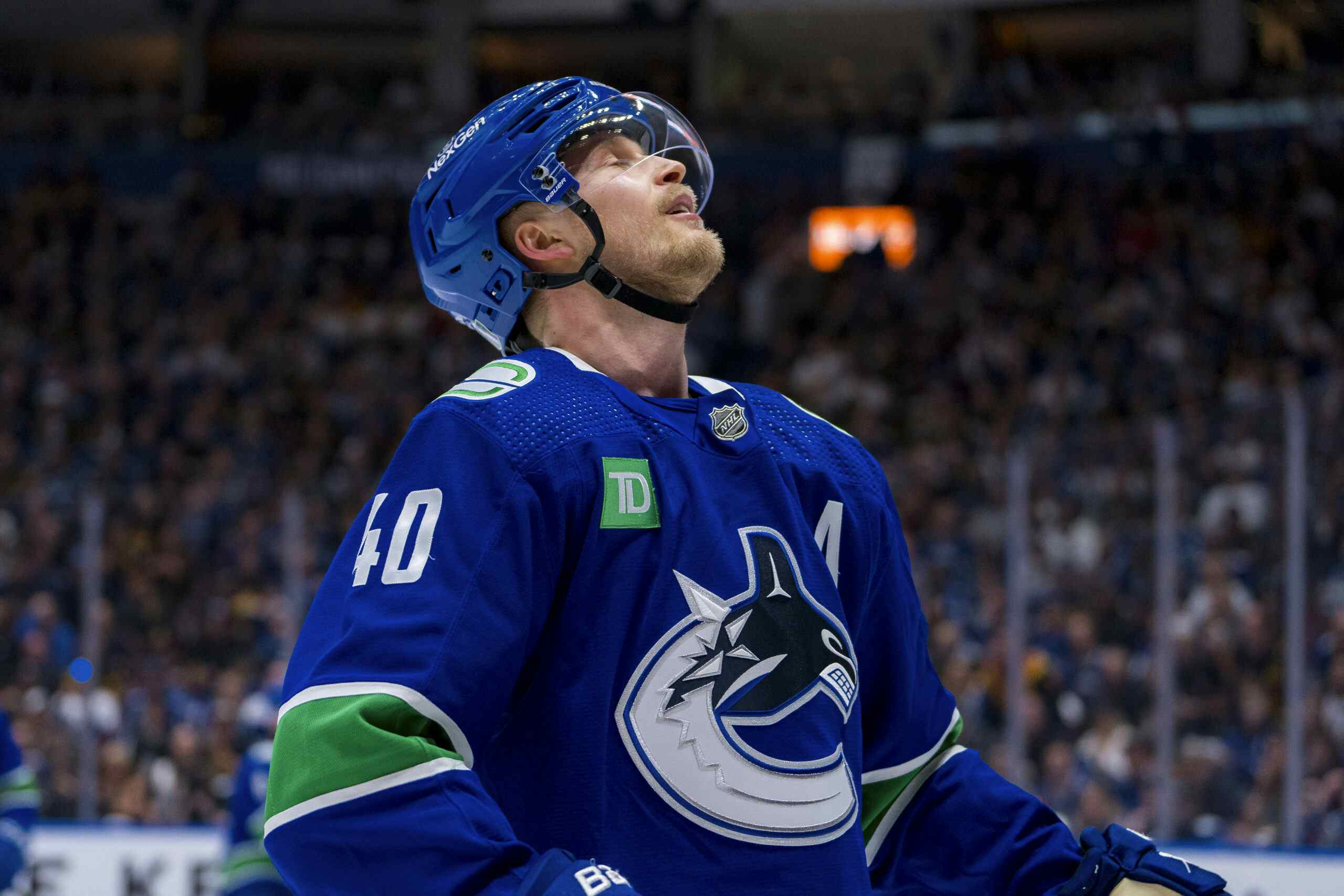The Buyout Window Opens: Will the Canucks Take Advantage?
The NHL’s "first buyout window" opened late last night, at 8PM PST. It will extend through regular NHL business hours (or until 5 PM EST, 2 PM PST) on July 4th, the eve of free-agency. For this season and next the buyout window will be especially interesting because, per the terms of the 2013 NHL/NHLPA collective bargaining agreement (CBA), teams will be able to use a maximum of two "compliance buyouts," or buyouts which will carry zero salary cap ramifications. We broke down the mechanism in detail earlier this month if you want a quick primer.
So the Canucks have eight days to look over their options and decide whether or not to avail themselves of this particular "weapon in the arsenal of the collective bargaining agreement," to quote Laurence Gilman. Knowing Mike Gillis’s preference for a considered, unemotional decision making process, and his habit of "working to deadlines," I wouldn’t expect any hasty decisions on the part of the team regarding the use of a "compliance buyout," or two this season.
Ultimately, however, salary cap realities will almost surely force the teams hand. According to the indispensible website capgeek.com, the Canucks currently sit a mere $47,222 below the upper limit of the 2013-14 salary cap, and they have six players still to sign to get to the 23 player limit (including, ideally, a top-nine centreman).
It’s certainly possible that the Canucks can achieve some creative salary cap destruction by pulling a variety of other levers, be it traditional ones like a hockey trade, or by using new mechanisms like "retained salary transactions." Frankly, it’s tough to see such maneuvers being sufficient to create the cap space the Canucks surely need if they hope to transform their club back into the juggernaut they were a couple of seasons ago.
Unlike the Flyers, Leafs and Canadiens, the Canucks have been mum on whether or not they plan on using a "compliance buyout" on one of their players up to this point. If they do utilize a compliance buyout on a current roster player it’ll most likely be on Keith Ballard, whose player agent Ben Hankinson has publicly lobbied for one. Mike Gillis again dodged directly answering inquiries on this subject immediately following the John Tortorella introductory press conference on Tuesday:
The Globe and Mail’s Gary Mason told the Team 1040 in late May that using a compliance buyout was a non-starter for Vancouver’s ownership group because of the money involved. Jason Botchford walked that back a bit when he reported that ownership’s refusal to avail themselves of the "compliance buyout" option "is not the understanding of (Canucks) management." In that same piece, however, Botchford also mentioned that Canucks ownership "had a hard time swallowing" the 1.8 million dollar liability the team took on when they acquired Brad Lukowich in the Christian Ehrhoff trade during the summer of 2009.
A theoretical Keith Ballard buyout would save the team 8.4 million dollars against the salary cap over the next two seasons, but would represent a 5.6 million dollar investment investment from ownership (1.4 million over four years)…
For now it’s tough to tell whether or not the Canucks will use a compliance buyout. What I would say is that I’m not someone who would read anything at all into Mike Gillis’s non-answers on this subject. That’s in line with Vancouver’s usual close-to-the-vest modus operandi. What’s easier to say, especially because it’s not my money, is that the Canucks absolutely should use a compliance buyout.
This offseason and some of the changes to the CBA that have come with it, presents well monied NHL clubs like the Canucks with a unique opportunity to act like the top European soccer clubs and purchase players within the parameters of the NHL’s salary cap system. For what it’s worth, Canucks ownership has okayed similar moves in the past with Christian Ehrhoff and David Booth, even if they did so reluctantly.
The Canucks could, for example, take on a bad contract in addition to a slick asset from a spend-thrift club, turn around and use a compliance buyout on that contract. According to Jason Botchford this is something the team was strongly considering in mid-May, and according to Larry Brooks the Maple Leafs and Lightning were exploring an even more devious scheme to take advantage of a loop hole in the compliance buyout provision in the CBA..
So is a quality young roster player on an entry level contract worth, say, four million six hundred and sixty six thousand dollars (aka the cost of buying out Scott Upshall)? I’d think so.
Alternatively, they could take back a bad deal in a Roberto Luongo trade and promptly buy it out. In doing so they might negate some of the trade value murdering impact of Luongo’s life-time contract.
From our vantage point, the Canucks have the money and the incentive to lift themselves off the mat and be serious players this offseason. Consider that according to Forbes’ admittedly bogus numbers, the value of the franchise has essentially exploded. In 2007, for example, Forbes valued the Canucks at $211 million. The Aquilini group you may remember, purchased the team in 2004 for a cool 250 million.
Around the same time as current Canucks ownership scored a technical knockout in the courts and were granted uncontested, complete ownership of the club, the team hired a guy named Mike Gillis. You can say what you want about Mike Gillis’s hockey moves, but he’s been an enormously successful General Manager from a business standpoint.
Since 2007 the value of the Canucks franchise has exploded, increasing nearly 60% from 211 Million in 2007 to 342 Million in 2012 (again according to Forbes). Forbes’ numbers for 2012 had the Canucks operating with the fourth largest budget and genearting the fourth highest amount of revenue among all NHL teams, which matches up well with Nate Silver’s recent work on NHL franchises that suggested that Vancouver is the fourth biggest hockey market in North America…
In writing up Forbes’ 2012 list, I wrote the following, "you have to spend money to make money and credit to Canucks ownership, they’ve consistently proven that they’re willing to do so." The Aquilini group has owned the Canucks for the better part of a decade, and there has never been any reason to question their commitment to spending whatever money was necessary in order to bring a Stanley Cup to Vancouver.
As such, it would be highly uncharacteristic of this ownership group to restrict Canucks management from taking full, creative advantage of the compliance buyout provision of the new CBA, whether it’s to buyout Keith Ballard, purchase young talent, or as the cost of doing business in a long awaited Roberto Luongo trade. Either way, we’re going to learn an awful lot about this organization over the next ten to fourteen days…
Recent articles from Thomas Drance

